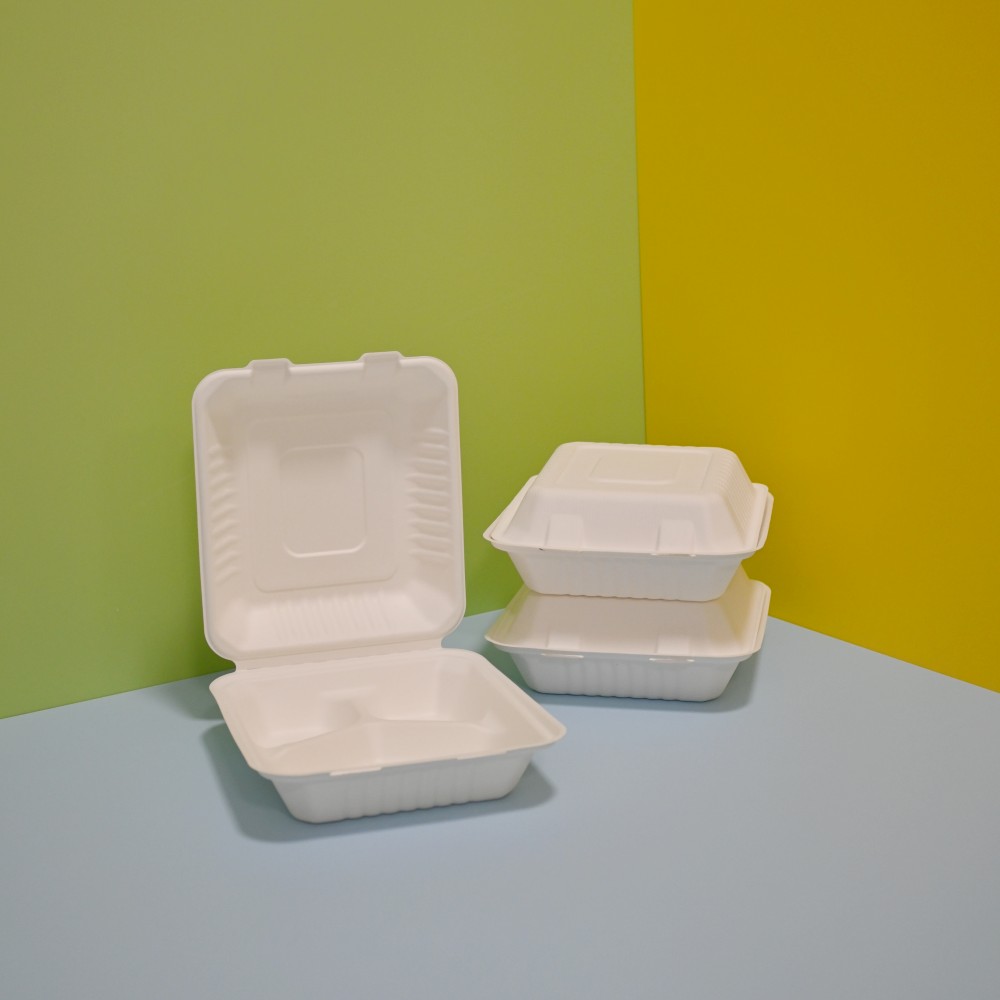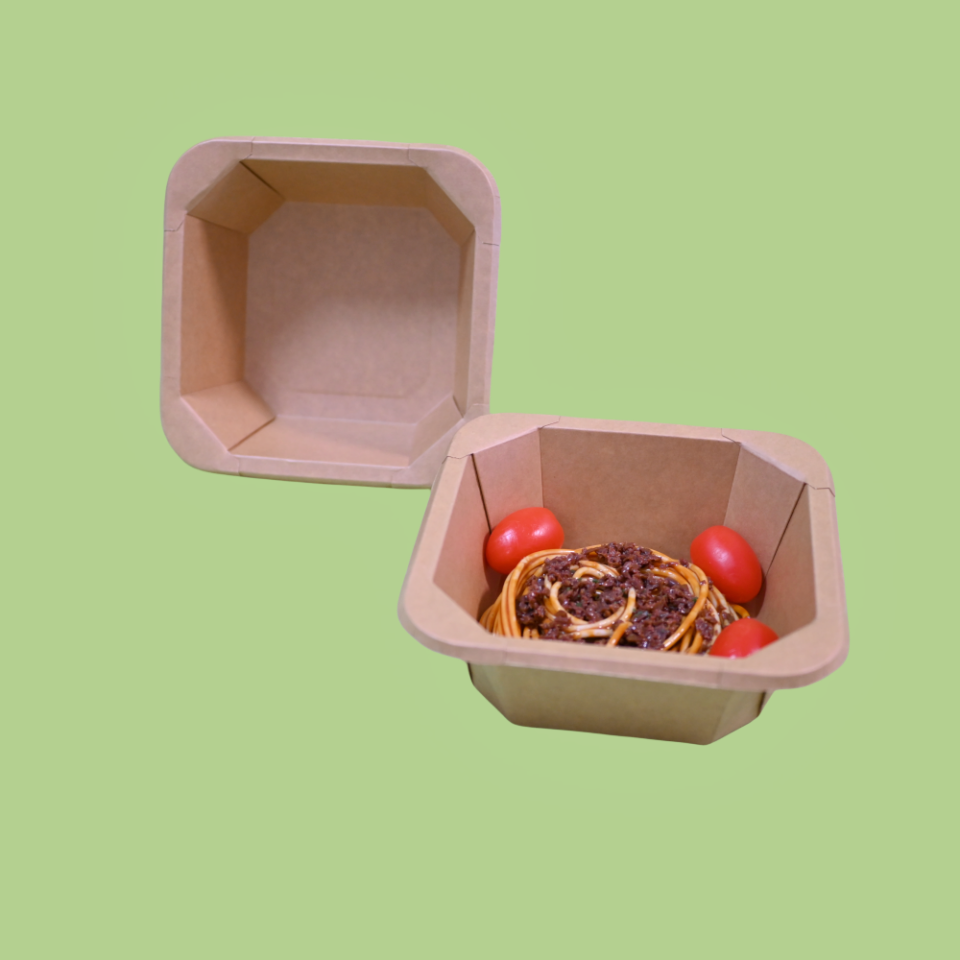In recent years, environmental sustainability has emerged as a crucial global issue, with countries around the world striving to reduce waste and promote eco-friendly practices. China, as one of the world's largest economies and a significant contributor to global waste, is at the forefront of this movement. One of the key areas where China is making significant strides is in the realm of compostable food packaging. This blog explores the importance of compostable food packaging, its benefits, challenges, and how you can help keep the great waste-free loop in motion in the context of China.
Understanding Compostable Food Packaging
Compostable food packaging refers to packaging materials that can break down into natural elements under composting conditions, leaving no toxic residue. Unlike traditional plastic packaging that can take hundreds of years to decompose, compostable packaging typically degrades within a few months to a year. This form of packaging is made from organic materials such as cornstarch, sugarcane, and cellulose, which are renewable and have a lower environmental impact.
The Importance of Compostable Food Packaging in China
China faces a significant waste management challenge, with urbanization and consumerism leading to a surge in waste generation. Traditional plastic packaging contributes massively to this problem, filling up landfills and polluting oceans. Compostable food packaging offers a viable solution to mitigate these environmental issues. By switching to compostable options, China can reduce its reliance on plastics, decrease landfill waste, and lower its carbon footprint.
Benefits of Compostable Food Packaging
1.Environmental Impact: Compostable packaging significantly reduces the amount of waste that ends up in landfills and oceans. When composted, these materials break down into nutrient-rich soil, which can be used to enrich farmland and reduce the need for chemical fertilizers.
2.Reduction in Carbon Footprint: The production of compostable packaging materials generally requires less energy and emits fewer greenhouse gases compared to traditional plastic manufacturing. This contributes to a reduction in the overall carbon footprint.
3.Promoting Sustainable Agriculture: Many compostable packaging materials are derived from agricultural by-products. Utilizing these by-products can support sustainable farming practices and provide additional income streams for farmers.
4.Consumer Health: Compostable packaging often avoids the use of harmful chemicals found in conventional plastics, making it a safer option for food storage and consumption.
Challenges and Barriers
Despite the numerous benefits, the adoption of compostable food packaging in China faces several challenges:
1.Cost: Compostable packaging is often more expensive than traditional plastics. The higher cost can deter businesses, especially small and medium-sized enterprises, from making the switch.
2.Infrastructure: Effective composting requires appropriate infrastructure. While China is rapidly developing its waste management systems, there is still a lack of widespread composting facilities. Without proper composting infrastructure, compostable packaging might end up in landfills where it does not decompose effectively.
3.Consumer Awareness: There is a need for greater consumer education on the benefits of Sustainable packaging and how to dispose of it correctly. Misunderstanding and misuse can lead to compostable packaging being discarded improperly, negating its environmental benefits.
4.Quality and Performance: Ensuring that compostable packaging performs as well as traditional plastics in terms of durability, shelf life, and usability is crucial for broader acceptance.


Government Policies and Initiatives
The Chinese government has recognized the importance of sustainable packaging and has introduced several policies to promote it. For instance, the “Plastic Pollution Control Action Plan” aims to reduce plastic waste through various measures, including promoting biodegradable and compostable alternatives. Local governments are also incentivizing businesses to adopt eco-friendly practices by providing subsidies and tax benefits.
Innovations and Business Opportunities
The growing demand for compostable food packaging has spurred innovation and opened new business opportunities. Chinese companies are investing in research and development to create more efficient and cost-effective compostable materials. Startups focusing on sustainable packaging solutions are emerging, driving competition and innovation in the market.
How You Can Help Keep the Great Waste-Free Loop in Motion
As consumers, businesses, and members of society, there are several ways we can contribute to promoting compostable food packaging and keeping the waste-free loop in motion:
1.Choose Compostable Products: Whenever possible, opt for products that use compostable packaging. Look for certifications and labels that indicate the packaging is compostable.
2.Educate and Advocate: Spread awareness about the benefits of compostable packaging among your friends, family, and community. Advocate for sustainable practices in your workplace and local businesses.
3.Proper Disposal: Ensure that compostable packaging is disposed of correctly. If you have access to composting facilities, use them. If not, consider starting a community composting project.
4.Support Sustainable Brands: Support businesses that prioritize sustainability and use compostable packaging. Your purchasing decisions can drive demand for eco-friendly products.
5.Reduce and Reuse: Beyond choosing compostable options, strive to reduce overall packaging use and reuse materials whenever possible. This helps minimize waste and supports a circular economy.

Conclusion
Compostable food packaging represents a significant step towards a more sustainable future. In the context of China, with its vast population and growing waste challenges, the adoption of compostable packaging is both a necessity and an opportunity. By embracing compostable materials, supporting sustainable policies, and making conscious choices, we can all contribute to keeping the great waste-free loop in motion.
The transition to compostable food packaging is not without its challenges, but with continued innovation, government support, and consumer awareness, China can lead the way in creating a greener, cleaner planet. Let’s take action today and be part of the solution for a sustainable tomorrow. Are you ready to make a difference? The journey towards a waste-free loop starts with each one of us.
You Can Contact Us:Contact Us - MVI ECOPACK Co., Ltd.
E-mail:orders@mvi-ecopack.com
Phone:+86 0771-3182966
Post time: May-29-2024










